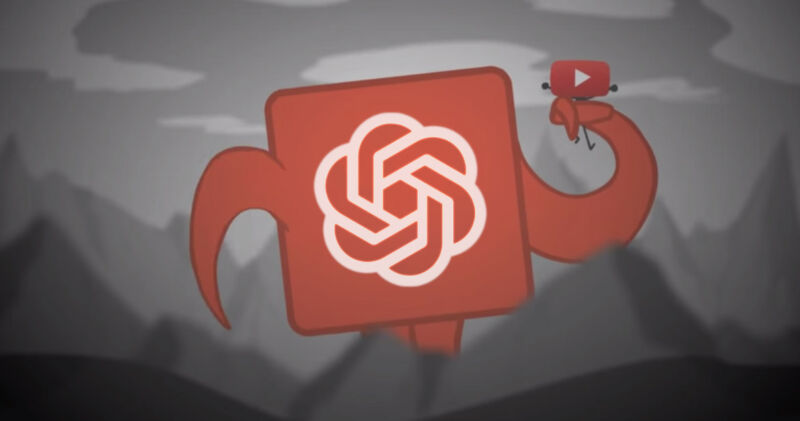
Years ago, circa 2011, Google was in a panic. Facebook was on the rise and Google was convinced the social network would soon swallow everything. To fight this blue scourge, then-Google CEO Larry Page issued a decree to his many employees: Your bonuses are now tied to Google's success in social! Build social features into everything! That memo resulted in many ham-fisted social integrations across Google that were widely hated by the user base. YouTube comments were tied to Google+, and the site was flooded with spam. Making a new Gmail address also required making a Google+ account. Google Search got little "+1" buttons, and generally anonymous usage of Google products was impossible due to the "real name" policy. And that's just the Google+ stuff—earlier this memo resulted in a social network being built into Gmail called "Google Buzz" that all users were initially forced to join.
That forced integration strategy was an abject failure, and after a few years of Google's social panic, all of Google+'s integrations were removed, and the service was eventually shut down. That past failure isn't stopping Google from pulling out that losing playbook for its next great panic: Bloomberg's Julia Love and Davey Alba report that Google wants to build ChatGPT-style features into everything. According to the article, Google issued "a directive that all of its most important products—those with more than a billion users—must incorporate generative AI within months."
We wrote last month that Google's ChatGPT panic seemed a lot like its response to Google+, and several employees relayed that same sentiment to Bloomberg. Just like with G+, the report added that "current and former employees say at least some Googlers’ ratings and reviews will likely be influenced by their ability to integrate generative AI into their work."AI is one of the few areas of Google that CEO Sundar Pichai is really invested in, with the CEO saying the technology would be “more profound than fire or electricity.” Google was, for years, a leader in AI with voice recognition features like the Google Assistant, speech synthesis features like Google Duplex, and mastering the game of Go. Those features debuted years ago, though, and a fear of rolling out imperfect products has meant Google locks a lot of technology away in a lab somewhere. OpenAI has no such fear of pushing the latest in AI technology out to the masses. While Google releases research papers, OpenAI releases products—and the company's generative chat AI OpenGPT has led to a stratospheric rise for OpenAI. The chatbot is already built into Bing, and the initial novelty has earned Bing 100 million daily active users in its first month. Google is no longer seen as an AI leader, and it's being punished by the stock market for it.
In a 2021 New York Times article that was critical of Pichai's management style, "A common critique among current and former executives is that Mr. Pichai’s slow deliberations often feel like a way to play it safe and arrive at a 'no.'" Despite many seeing Pichai as the source of Google's reluctance, the Bloomberg report says the CEO is now taking a more hands-on approach to product development, saying, "The effort has Pichai reliving his days as a product manager, as he’s taken to weighing in directly on the details of product features, a task that would usually fall far below his pay grade, according to one former employee."As for exactly what these forced AI integrations will look like, the report cites a recent YouTube feature that would let people virtually swap outfits. In Alphabet's Q4 2022 earnings call, Pichai said the company was "working to bring large language models to Gmail and Docs," so expect to be able to click a few buttons soon and have those apps generate blocks of text. The Bloomberg article quotes one Google employee as saying, "We’re throwing spaghetti at the wall, but it’s not even close to what’s needed to transform the company and be competitive.”
reader comments
112